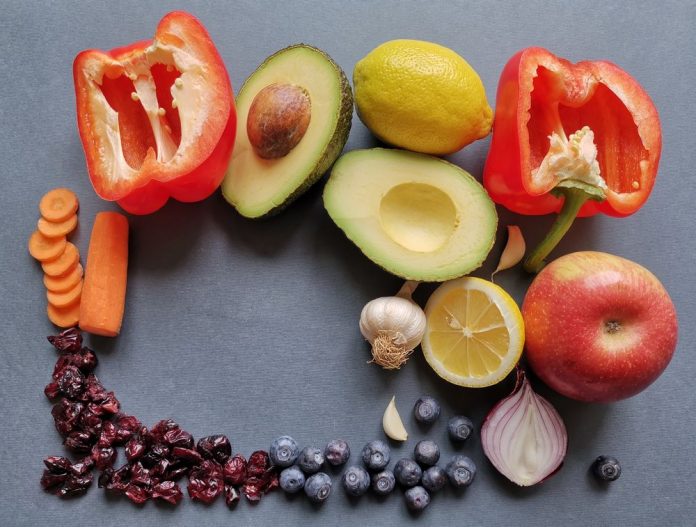It is possible to lead a normal, healthy life despite chronic kidney disease. Eating a balanced, healthy diet is one of the best ways to manage your kidney disease and prevent it from progressing.
A low-protein, high-protein or no-protein diet may be recommended for those with chronic kidney diseases. Your doctor may also suggest limiting extra fluids, minerals, or electrolytes, depending on your needs.
Here are 10 foods you should eat, or avoid, if kidney disease is present:
Foods To Eat
The red bell pepper: Because they are low in sodium and high in taste, the red bell peppers make a great food for people with kidney disease. Also, they are a good source of fiber, folic acid, vitamin B6, vitamin A, and vitamin C. You can eat them raw as a snack with a dip, or roast and add to your favorite sandwich or salad, or chop and sauté into a stir-fry. There are so many options. You can also promote kidney health by eating sweet potatoes, spinach, sweet potato, sweet corn, kale, and cabbage.
Blueberries have a good reason to be considered a superfood. Blueberries are rich in antioxidants and also contain fiber, vitamin C, and low calories. You can find them at the local grocery store or farmer’s markets when they are in season. In the off-season, or if you want to make smoothies more easily, you can buy frozen berries. If you want some variety in your diet, strawberries, raspberries, and cranberries are all good foods to eat.
Garlic You might think that a kidney-friendly food is bland if you are used to eating foods with salt and other additives. But it is not. Garlic can give your food a boost in flavor. Garlic also reduces inflammation, lowers cholesterol and helps to fight plaque. Garlic powder is fine, although it is always better to purchase fresh. You should avoid garlic salt.
Whites of eggs: The building blocks of our body are proteins. For kidney disease sufferers, however, they should consume it in moderation and with caution. The whites of eggs contain all the essential amino acids and less phosphorus compared to other protein sources. If you would prefer to obtain your protein through meat, choose a fish such as salmon that is rich in omega-3 fats or lean red meat cuts like a loin or a round.
Onions are a great way to flavor any dish. They also have many health benefits. Low in potassium, they are rich in flavonoids, a powerful antioxidant that can reduce the risk of heart disease and cancer. Onions also contain chromium, a mineral that improves your body’s ability to metabolize carbohydrates, fats, and proteins.
Foods You Should Avoid
Soft drinks: They are high in sugar, calories, and additives that extend shelf life. Dark-colored sodas are especially high in phosphorus. This additive is easily absorbed into the body.
Avocados Although avocados are often touted as having health benefits, it may surprise you to learn that they appear on our list of foods you should avoid. They are rich in antioxidants, healthy fats, and fiber, but also in potassium, a mineral that many kidney patients need to limit.
Canned Foods: The convenience of canned food is hard to ignore. The extended shelf-life that these products provide comes at a price. These products are often preserved with salt, which makes them high in sodium. Choose canned food that is not salted.
Milk: Although dairy products like milk and yogurt provide many vitamins and nutrients, excessive consumption can be harmful to people with kidney disease. Dairy products contain phosphorus and potassium, as well as being a source of good protein. They may be okay on their own but when combined with other foods rich in phosphorus, the effects can become detrimental. When the kidneys have been damaged, excessive phosphorus intake can lead to a build-up of phosphorus. Over time, this can cause your bones to become thin and weak and increase the chance of a fracture or breakage.
Processed Meats: You’re right to notice a trend. Avoid foods that are processed to stay shelf-stable or that would otherwise expire if they were in their natural form. These products are typically salted, dried or cured, and even canned in the case of processed foods. This makes them high sodium, such as hotdogs, bacon, sausage, pepperoni and jerky. These foods also contain a lot of protein, which is another area that kidney patients should closely monitor.
What you eat or drink can affect your health, whether or not you have kidney disease. A healthy diet and a well-balanced weight are key factors in controlling blood pressure and sugar. Diabetes and high blood pressure are the two leading causes of kidney diseases, along with heart disease, stroke, and heart attacks.
It’s not about avoiding foods, but about finding the right amount of calories, protein, and fats.
Summary
To help manage chronic kidney disease (CKD), doctors generally advise patients to limit their consumption of potassium, phosphorus, and sodium. The disease’s stage determines the dietary restrictions.
On a renal diet, there is a vast list of foods that are best avoided, but there is also a large list of items that people can eat and yet have good kidney health.
To discover the best diet for them, a person can consult with a renal dietitian.







